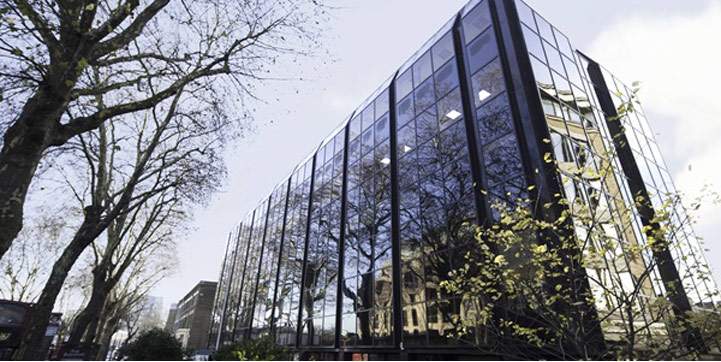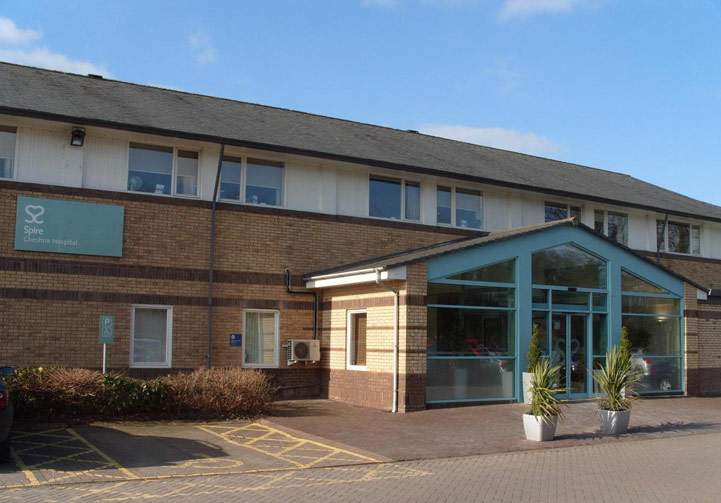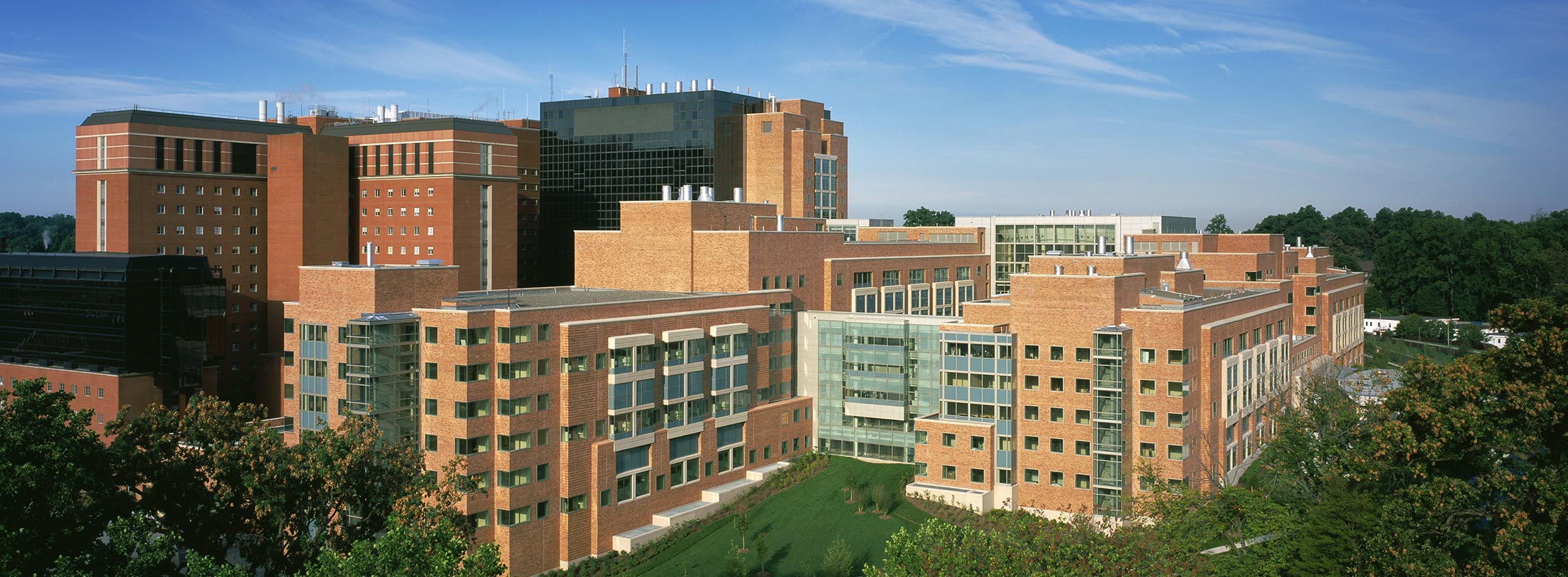An increasing number of patients are turning to the private sector for elective procedures, creating significant opportunities for investors and operators in the UK Private Independent Hospital sector
Capacity is constrained and waiting times for hospital treatment are at record highs
The UK’s public healthcare system entered the Covid-19 pandemic with an already limited capacity
Between 2011 and 2021, the number of hospital beds fell by 8.7%, leaving the UK with 2.4 hospital beds per 100,000 people – around half the OECD average. As a result, the impact of Covid-19 has been substantial, with the number of patients waiting to be referred for treatment, and the average length of time they are waiting, both significantly increasing.
The current NHS backlog is not going anywhere, with many estimating it will persist for some 7–10 years. This backlog is therefore underpinning elevated demand for the private hospital sector in the short-to-medium term and driving significant investor appetite in what is seen as a sustainable real estate sub-sector. As it stands, there are 6.1 million patients waiting for a referral, almost two million more than at the beginning of 2020.
A leaked NHS report, heavily reported on in the media, suggests the total number of patients waiting for referral could reach 10 million by 2024.
Median wait times have risen more than 50%, from 8 weeks to 13 weeks. Long waits have become more common, especially for complicated or rare treatments: the share of patients waiting more than 18 weeks rose from 17% in 2020 to 37% in 2022.
The number of people waiting more than a year has increased from 1,600 in February 2021 to 312,000 in January 2022. All of these trends show little sign of reversing and are fuelling elevated demand in the private self-pay market.
Independent hospitals have seen a huge increase in self-pay since Covid-19
The Covid-19 pandemic has forced many NHS hospitals to suspend non-urgent care, creating the unprecedented backlog of patients and significantly longer waiting times. As many among that backlog of untreated NHS patients now turn their sights towards private provision, which has traditionally been less commonly utilised in the UK, the independent sector will see continued growth.
According to the OECD, just 10.3% of the UK population has medical insurance and private expenditure on healthcare as a share of total expenditure in the UK is less than the OECD average. But now, the landscape is changing. As just one example, private hip and knee replacement procedures increased by 165% and 122% respectively between Q3 2019 and Q3 2021. This shift represents a large opportunity for independent owners and operators of healthcare real estate.
According to a recent YouGov poll, over a fifth of respondents said Covid-19 had made them more likely to consider using private healthcare, compared to before the pandemic. Of those, a large majority believed they would be able to get treatment quicker this way. According to another poll, conducted by Rare Consulting on behalf of The London Clinic, 25% of responders said they are likely to use self-pay in the future. Among those earning in excess of £100,000, that figure rises to over 50%.
Self-pay has already enjoyed strong growth over the past decade: revenues across the UK self-pay market more than doubled between 2009 and 2019, generating £1.1 billion in 2019, according to LaingBuisson.
But the current NHS backlog and long waiting times appear to be driving even quicker growth in self-pay. Spire Healthcare, the largest independent provider in the UK, has seen the proportion of its patients using self-pay almost double, increasing from 15% in 2020 to 27% in 2021.
A few large operators and investors dominate the independent hospital market
The provision of independent healthcare in the UK remains heavily concentrated amongst a few large operators. For example, 72% of all private patient procedures were catered for by the five largest operators in 2020-21, according to CMA/NHS data.
The largest three operators alone – Spire Healthcare, Circle Health Group, and Nuffield Health – accounted for over half of the total market.
Profitability varies significantly across independent sector providers of acute medical care services. For instance, for financials where the majority of activity was in 2019, LaingBuisson found that (positive) EBITDAR margins ranged between 5.7% and 31.3%, and the (geometric) unweighted average within this range was 16.0%. This excluded a handful of providers that reported negative EBITDAR margins in recent years, which were typically new entrants, and public sector subsidiaries.
In 2019, the EBITDAR margins of BMI Healthcare, Spire Healthcare and Ramsay Healthcare ranged between 17% and 17.5%. HCA International, the largest operator in London, reported a lower EBITDAR margin of c. 8% collectively for its largest subsidiaries during the year, and Nuffield Health, the largest non-profit provider also generated a lower (equivalent) EBITDAR margin of c.15%.
Private hospital providers are not immune to the current inflationary environment and increased staffing costs that the operational real estate sectors are experiencing more broadly. However, given the increasing NHS backlog, structurally the demand for private medical treatment is expected to continue for the short-to-medium term, meaning that the major private hospital providers will be able to soften inflationary pressures and sustain profit margin despite rising costs. In the short term, caps on rents, which are written into many hospital leases, will be in favour of the operators, meaning they won’t be as exposed to the rapidly increasing inflationary pressures.
For investors, this will mean that they are not exposed to over-rented properties, making the assets more sustainable in the long term, however, they will not enjoy the short-term income uplifts that they might if the leases were without a rental cap or subject to open market rent reviews.
In summary, private hospitals remain an attractive asset class for investors, given the strong demand drivers, which are helping to balance an environment of increased costs.
Increased investor appetite for independent hospital real estate is driving strong yield compression
Driven by the increased demand for private medical procedures, the last two years have seen a huge increase in the amount of investment targeting the independent hospitals market, with nearly £2.1bn of transactions since 2020.
Deal activity has been restricted however to a small number of big players. Over the past two years, 97% of transaction value across the sector was through acquisitions made by either Medical Properties Trust (MPT) or North West Healthcare Properties REIT (North West), both North American specialists in healthcare real estate.
Major deals from these two include MPT’s £1.5bn acquisition of a portfolio of 30 hospitals from BMI Healthcare, and North West’s acquisition of 10 hospitals in two separate portfolio transactions – a deal worth nearly £400m. All three of these transactions completed in 2020, making it a bumper year for investment volumes.
Whilst we’ve seen a trend of falling yields over the past decade as the market matures, the net initial yield for 2020 jumped. This can be explained by ‘out of the ordinary’ deals. In one transaction, North West acquired the tenant, Aspen Healthcare, which was in administration. In another North West transaction, the leases had a WAULT of only 13 years. Both of these examples impact the covenant strength, and so ultimately the pricing, of the assets.
Independent hospital investors
The largest owners of independent hospital real estate in the UK are North American and UK-domiciled REITs. Given the competition for assets in this market, investors who are unable to access the sector directly have the opportunity to gain exposure to private hospitals by indirectly investing through a REIT.
Mental and behavioural health offers opportunities for growth
Under the Mental Health Act 1983, people with mental disorders may be formally detained in hospital in the interests of their own health and safety, or for the protection of other people. The number of these detentions has been growing year on year, but the provision of mental health services remains insufficient and of variable quality across the UK.
With competition in the mainstream hospital market being dominated by major players such as MPT and North West, the mental health and behavioural facilities sub-sector offers increasing opportunities and considerable scope for growth for specialist real estate investors. Those big-name players, however, are already starting to invest in this less mature sub-market. This was evidenced last year when MPT paid £800m for a portfolio of mental health and behavioural facilities, which they acquired from the Priory Group.

Chiswick Medical Centre leased to HCA, was acquired at a 3.7% net initial yield by PHP earlier this year
In 2020-21 there were 53,000 detentions, a 16% increase on 2016-17. However, the proportion of people under care through independent providers remains very limited, at around only 6%. At present, independent mental healthcare hospitals are of variable quality. Whilst many offer sector-leading (‘Outstanding’) care, the proportion of independent mental healthcare hospitals rated either ‘inadequate’ or ‘requires improvement’ is nevertheless nearly twice as high (28%) as in the independent hospital sector as a whole (15%). For comparison, an even higher 39% of NHS hospitals are either inadequate or require improvement, according to the Care Quality Commission (CQC).
Furthermore, when it comes to the quality of care in mental and behavioural health facilities, geography is a key determinant. In Yorkshire and the Humber, the worst-performing region, 45% of mental health hospitals were rated ‘inadequate’ or ‘requires improvement’, whilst in the South West, the best performing region, the figure is just 8%.
Independent mental healthcare is clearly poised for growth given the increasing demand and significant lack in supply and quality service provision.

Cheshire hospital operated by Spire Healthcare in Warrington was acquired by NorthWest Healthcare REIT in late 2021 at a 4.0% yield
For further information, please contact our Healthcare experts, here.
